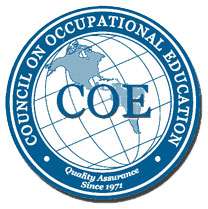According to the Bureau of Labor Statistics, medical records specialists are in high demand. Between 2022 and 2032, employment rates are projected to grow by 8% with 15,000 job openings each year.
Medical billing and medical coding jobs are essential for keeping up with the fast-paced demands of the medical industry. Billing and coding are vital aspects of healthcare administration for medical practitioners and hospitals.
But just what is medical coding? And for that matter, what is medical billing? If you’re interested in learning more about medical billing and medical coding, keep reading below for 10 things you should know about these unique career paths.
1. Differences of Medical Billing vs Medical Coding
Medical billing and medical coding are often used interchangeably, but they also have their differences. Both billing and coding are actually two different job elements. However, billing and coding can work in tandem to facilitate a speedier billing process.
Medical coding involves assigning codes to a patient’s conditions, like Rheumatoid Arthritis or Diabetes, into a computer system. It also includes assigning codes for any treatments or services a patient receives from their hospital or healthcare provider. Medical coders must have the proper knowledge of the most current HCPCS and CPT codes.
On the other hand, medical billing is the process involved in submitting these medical claims to patients and insurance and collecting any payments for the provided services. With the right medical codes, medical billers send out statements and work with insurance companies on claim acceptance and denials.
2. Education and Certification Requirements
The good news for both medical billing and medical coding candidates is that you aren’t always required to have a college degree. To start as either a medical biller or coder, you should at least have your high school diploma or GED. If you have an associate’s degree, however, this can be beneficial for potential employers.
It is recommended that you enroll in a state and federally-accredited career college that offers a Medical Biller and Coder Program. These courses offer specialized training in:
- Insurance Billing and Collections
- Procedure and Diagnostic Coding
- Medical and Dental Office Procedures
After completing your Medical Biller and Coder Programs, you will need to be certified as a Certified Billing and Coding Specialist (CBCS) from the National Healthcare Association (NHA). You may also wish to obtain the Certified Professional Biller (CPB) to demonstrate your expertise in billing processes.
There is also the Certified Coding Associate (CCA) certification from the American Health Information Management Association (AHIMA) for medical coders. Professionals may pursue certifications like Certified Coding Specialist (CCS) or Certified Professional Coder (CPC) to showcase coding proficiency.
3. Medical Billing vs Medical Coding Salary
Medical billing and medical coding also differ in their salary ranges. Salaries are configured based on elements like education and experience. They can also vary based on location and demand as certain areas may have more need for billing and coding professionals so they will be willing to pay more.
Data from Indeed shows that the average national salary for a medical biller is $35,246 per year. While a medical coding specialist can earn $54,789 per year. However, a highly skilled individual trained in both medical billing and medical coding can earn an even higher salary range depending on their experience.
Furthering your education and honing your skills can help you reach higher pay brackets. You may be able to move up the chain to the management level over time.
4. Skills of Medical Billers and Coders
The skills needed for medical billing and medical coding extend beyond the typical training needed.
For medical billing, you will need to possess strong financial acumen. This means you will need to have proficiency in financial transactions. You must have an understanding of insurance policies and understand how to manage billing software.
With medical billing, you must have strong communication and customer service skills. You will need to handle patient inquiries and payment discussions. If a patient is upset about an incorrect medical bill, you must be able to rectify the situation.
Medical coding will require you to have some underlying medical knowledge. You will need to have a solid understanding of medical terminology. This will help you to better understand procedures and anatomy.
You must have a keen attention to detail as well. Precision and attention to detail are crucial to ensure correct code assignments for more accurate billing.
5. Levels of Patient Interaction
Not everyone likes to be in the public eye. Some prefer to be out in the open while others opt for more behind-the-scenes work. Medical billing and medical coding career paths both have different levels of patient interaction associated with them.
Medical coders reap the benefits of having limited patient interaction. Their primary focus is on reviewing and analyzing medical records to assign accurate codes to diagnoses and procedures. They mostly work with medical practitioners to ensure the accuracy of the codes.
Medical billers often have direct interaction with patients. For one, they are responsible for billing inquiries and issues related to insurance coverage. They must also handle patient calls or inquiries regarding:
- bills
- co-payments
- insurance claims
- payment arrangements
- insurance verification
If you’re not into a lot of interaction, medical coding may be an ideal job for you. In some settings, though, medical billing and medical coding professionals may be able to work remotely or in hybrid environments.
6. Impact on Revenue Cycles
Medical billing ensures timely reimbursement. Accurately submitting claims and managing the billing process accelerates the reimbursement process. A prompt claims submission process positively impacts cash flow.
Medical coding deals with claims accuracy in revenue cycles. Using the correct codes contributes to the approval of claims and prevents denials.
Medical billing and medical coding specialists work together to ensure a cohesive revenue cycle management process. Utilizing accurate coding from billing coders can set the foundation for successful billing by providing the necessary information for claims.
7. Regulatory Compliance
Medical billing and medical coding specialists face strict rules and guidelines for regulatory compliance. This is not only for patient privacy but also for the protection of medical practitioners. Proper billing and accurate coding practices can help prevent legal and financial issues.
Medical coders ensure compliance by accurately assigning ICD and CPT codes based on coding guidelines. They must focus on specificity and patient privacy under HIPAA.
On the other hand, medical billers navigate compliance through adherence to billing regulations. They must also account for insurance guidelines and charge capture accuracy. All of this must be done while maintaining HIPAA standards for patient data.
Collaboration between coders and billers is crucial for addressing documentation discrepancies. This ensures overall audit preparedness within the healthcare organization.
8. Billing and Coding Software Proficiency
Medical billers must have proficiency in financial software, practice management software, and billing software. They use billing software to create invoices, track payments, and manage patient accounts. These areas are crucial for medical billers to efficiently manage the financial aspects of healthcare organizations.
Medical coders use coding software to assist in code assignment and to provide adherence to coding guidelines. They must display proficiency in encoding tools, CDI software, and coding software.
All of these elements are essential for accurate coding to accurately translate clinical information into standardized codes and ensure compliance with coding guidelines.
Though medical billers and coders use their own software systems, the end result is a collaborative effort. Integrative systems and shared databases allow for an accurate data exchange.
9. Continuous Learning Environment
Both medical billing and medical coding lend themselves to a continuous learning environment. The medical industry is a dynamic and ever-evolving landscape. That means that billing and coding must also evolve to meet federal and state changes.
The evolution of coding systems alone is a vital undertaking. Coding systems, such as ICD and CPT, undergo regular revisions and updates. Continuous learning helps coders stay current with new codes, coding conventions, and documentation requirements.
There is also the adoption of new technologies like electronic health records (EHRs) and coding software. Continuous learning is essential to adapt to technological advancements.
Looking for an interesting job that is constantly evolving, and adapting? With medical billing and medical coding, you’ll never be bored.
10. Job Opportunities
Between Medical Billing and Medical Coding, there are also different job opportunities you can seek out. For medical billing, your work can include positions in:
- billing specialist
- revenue cycle management
- healthcare administration
- medical billing consultant
- medical billing associate
The medical coding side offers different settings and opportunities such as:
- coding departments of healthcare facilities
- insurance companies
- working as independent coding consultants
- educational clinical coding manager
- consulting firm compliance officer
Professionals in both of these fields can pursue various job opportunities. They can also make themselves invaluable to employers through additional credentialing and training.
Explore Medical Billing and Medical Coding Programs With Healthcare Career College
Medical billing and medical coding have a profound impact on the medical industry. The need for skilled billing and coding professionals is at an all-time high. You can complete a computerized Medical Billing and Coding program in just 11 months.
Healthcare Career College state and federally-accredited vocational and career college offering an array of flexible and affordable healthcare programs. We believe that a career in healthcare is a respected profession and offers a path to stability and a better life.
Are you ready to start the next chapter of your life? Then contact Healthcare Career College today for more information.



